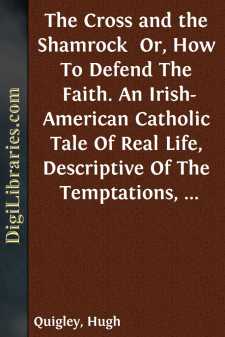Categories
- Antiques & Collectibles 13
- Architecture 36
- Art 48
- Bibles 22
- Biography & Autobiography 815
- Body, Mind & Spirit 144
- Business & Economics 28
- Children's Books 18
- Children's Fiction 14
- Computers 4
- Cooking 94
- Crafts & Hobbies 4
- Drama 346
- Education 58
- Family & Relationships 59
- Fiction 11834
- Games 19
- Gardening 17
- Health & Fitness 34
- History 1378
- House & Home 1
- Humor 147
- Juvenile Fiction 1873
- Juvenile Nonfiction 202
- Language Arts & Disciplines 89
- Law 16
- Literary Collections 686
- Literary Criticism 179
- Mathematics 13
- Medical 41
- Music 40
- Nature 179
- Non-Classifiable 1768
- Performing Arts 7
- Periodicals 1453
- Philosophy 65
- Photography 2
- Poetry 896
- Political Science 203
- Psychology 44
- Reference 154
- Religion 515
- Science 126
- Self-Help 85
- Social Science 83
- Sports & Recreation 34
- Study Aids 3
- Technology & Engineering 59
- Transportation 23
- Travel 463
- True Crime 29
Our website is made possible by displaying online advertisements to our visitors.
Please consider supporting us by disabling your ad blocker.
The Cross and the Shamrock Or, How To Defend The Faith. An Irish-American Catholic Tale Of Real Life, Descriptive Of The Temptations, Sufferings, Trials, And Triumphs Of The Children Of St. Patrick In The Great Republic Of Washington. A Book...
by: Hugh Quigley
Description:
Excerpt
A DEATH-BED SCENE.
A cold evening in the month of January, a drizzling rain storm blowing from the south-west, a cheerless sky, a dull, threatening atmosphere, together with almost impassable roads,—these are the chilling and uninviting circumstances with which, if we pay regard to truth, we must introduce our narrative to our readers. It is usual, with writers of fiction and romance, to preface their literary exhibitions with high-wrought and dazzling descriptions of natural and artificial objects—the sun, moon, and stars; the clouds, meteors, and other fantastic creations of the atmosphere; the seas, rivers, and lakes; the mountains, fields, and gardens; the birds, fishes, and the inhabitants of the savage forests, as well as the forests, groves, and woods themselves,—in a word, all nature seems as if conscious of the effects likely to result to the morals, habits, and projects of men, while some of your modern novelists are arranging their matter, sharpening their scissors, preparing pen, ink, and paper, and taking indigestible suppers to make way into the world for the offspring of their creative fancies. Ours being a tale of truth,—yes, of bare, unvarnished truth, yet of truth more interesting, if not "stranger, than fiction,"—it is not to be wondered that, when we acknowledge the homely dame, and her alone, as our guide, inspirer, and preceptor, we lack the advantage of romancers, and cannot command "a special sunset," or a storm made to order, or other enchanting scenery, to introduce us to our patrons.
We must take things as we find them; and this is why cold, rain, and frost, the whistling of merciless winds, together with false and pitiless ice, constitute the principal features of our introductory chapter. The merry chimes of sleigh bells, as if to add gloom to the scene, were silent, no snow having fallen this winter, and the ice being irregular and lumpy. The streets of the city of T—— were almost entirely deserted of foot passengers, owing to the danger of walking over the slippery pavement; while cabmen and omnibus conductors had cautiously driven their teams to the stable or smithy, to have them "sharpened" for the frozen coat of mail which enveloped the earth. When about dusk, an aged gentleman, in a cloak, with a sharp-pointed cane in his hand, might be observed moving along the gutter of a narrow street. Occasionally he would slip so as to come on one knee, and now he would steer himself along by taking hold of the sills of windows, and of the railings which here and there were erected in front of a few houses on the retired and deserted street on which he crept along.
At length he approaches an old three-story, red, frame-built house, which, from its shattered and dilapidated windows, at first seemed to be deserted, but which, from the description left by a messenger with his domestic in the forenoon, he could not doubt was the place where he heard the emigrant widow lay at the point of death.
"Is this where the sick woman is?" said he to an old woman who opened the door....


